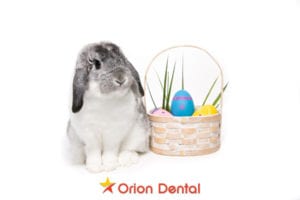We’ve been asked some questions by some of our patients that we thought we would share with you, in case you’ve been wondering the same things.
Is xylitol based toothpaste as good as fluoride toothpaste?
We would say no, unless there is a specified medical reason why you would need to avoid fluoride. Your doctor can tell you if this type of change is indicated for you. There are some people who are sensitive to fluoride, so they would be good candidates to use a xylitol based paste. Just be sure to check the ingredients because some naturally based xylitol toothpaste still contain fluoride.
If you had a choice between a root canal / crown or extraction / implant, which would you choose and why?
Always assuming that you actually had a choice, that the tooth was strong enough to support a crown rather than an extraction / implant scenario, there are pros and cons on both sides.
A root canal / crown is a more cost effective option but is not nearly as durable. An implant is a permanent replacement for an extracted tooth and as closely resembles a natural tooth as is possible in cosmetic dentistry. The life of a crown depends partly on the durability of the tooth that remains under it but is quite simply not as strong as an implant.
An implant is also easier to care for, again because of its resemblance to a natural tooth. You will need to consider the likelihood of having to replace the crown at some point, creating a situation where the cost difference becomes negligible.
Under age 3, if your kids are not prone to tooth decay, you can avoid fluoride toothpaste, which a young child might swallow instead of spitting out, and use just water while brushing. There are no useful studies to indicate that xylitol based toothpastes are a better option in this case.
Fluoride is a naturally occurring mineral that strengthens your teeth by being absorbed by your tooth enamel and adding calcium and phosphorus, which help to keep your teeth hard. This is a process called remineralization. Fluoride free toothpaste — brands that contain xylitol — will not be as effective in keeping your teeth strong but they do have cavity-fighting properties, so discuss it with your dentist if you are very concerned about the use of fluoride in your oral health regimen.
What molars — or their extraction — impact the shape of my face?
Tooth loss is not always about the teeth. It also affects the bone. Initially, it impacts the alveolar bone, which decreases in density after a tooth loss, but eventually also affects the basal bone, which is your jawbone.
“After alveolar bone is lost, the bone beneath it, basal bone — the jawbone proper — also begins to resorb (melt away). The distance from nose to chin decreases and with it, the lower third of the face partially collapses. The chin rotates forward and upward, and the cheeks, having lost tooth support, become hollow. – See more at: http://www.deardoctor.com/articles/hidden-consequences-of-losing-teeth/#sthash.pIvA1mHN.dpuf”
As the jawbone shrinks, it can pull back on your gums, which therefore affects adjacent teeth. Missing teeth and a reduced jawbone will eventually cause your face to collapse as it can no longer support your lips and cheeks from the inside.
In every circumstance, a dentist will prefer that you keep your natural teeth if at all possible but when it is not, and extraction becomes necessary, it is important to discuss cosmetic replacements with your dentist to ensure that there aren’t subsequent effects from the loss.
If you have other questions about your oral health, feel free to ask! We’ll do our best to answer them for you. We have dentist offices in both Milton and Scarborough, both with evening and weekend hours, so give us a call today at our Milton dental office at (905) 636 – 9770 or at our Scarborough dental office at (416) 291 – 0306. Give us a call to book an appointment and let’s get started!








